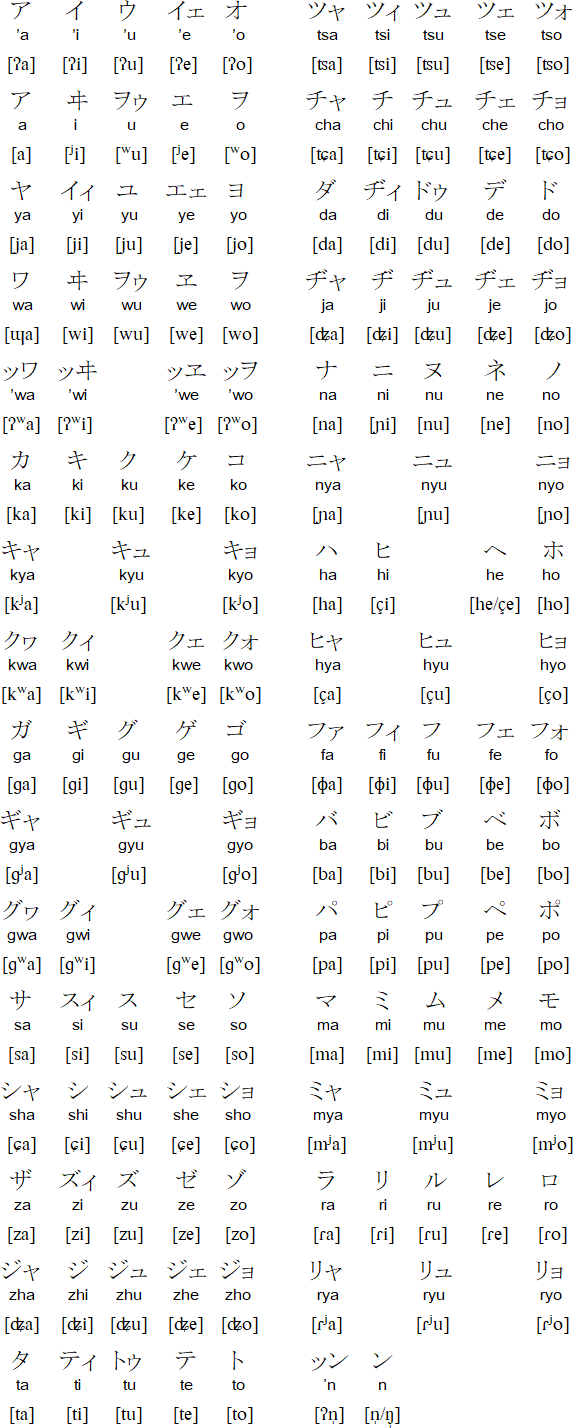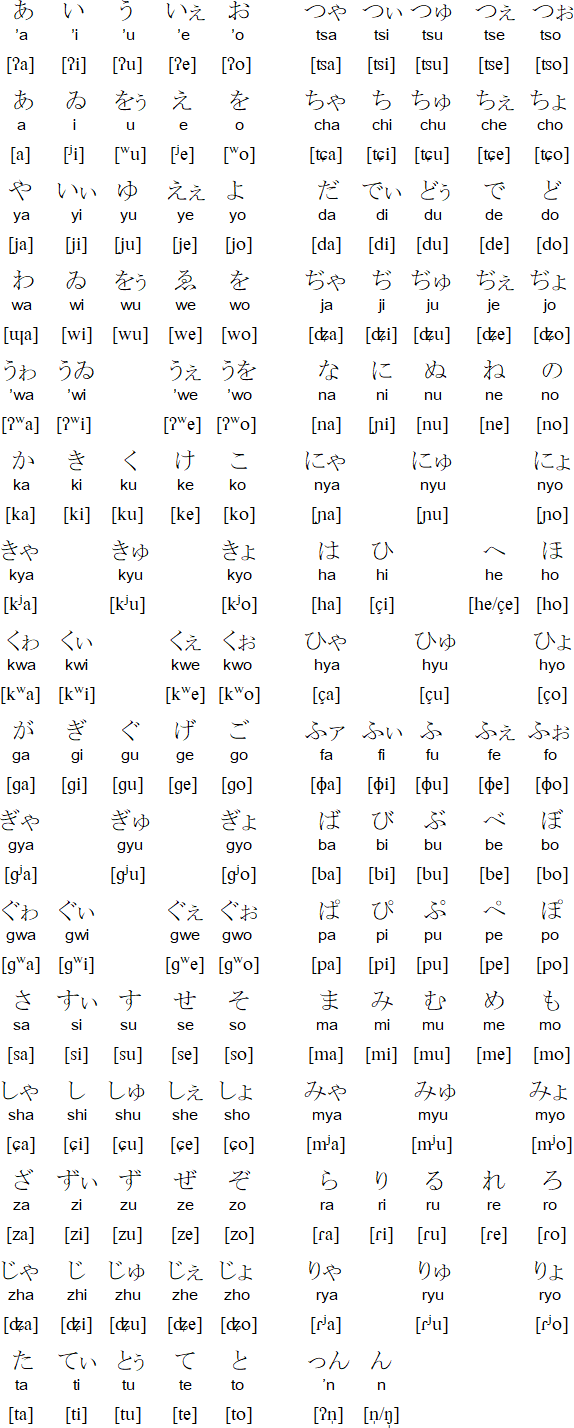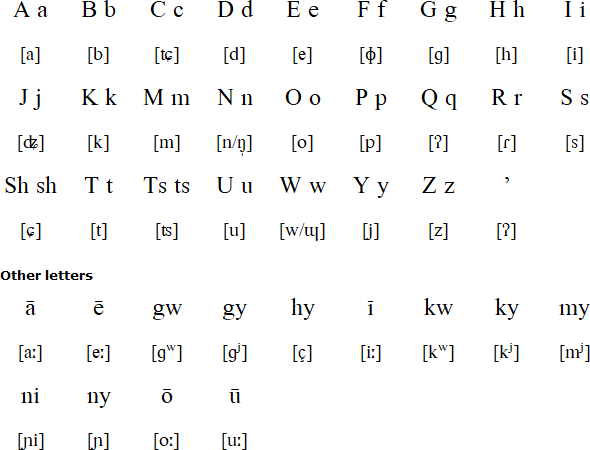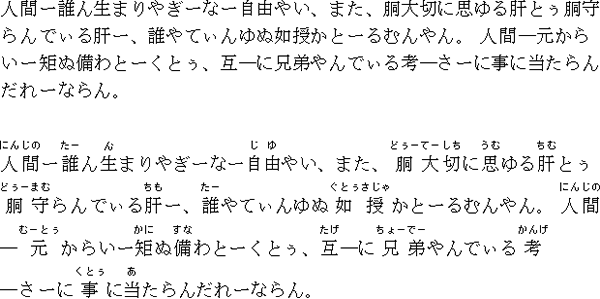Okinawan is a member of the Ryukuan language family spoken in Okinawa prefecture by about 977,000 people. It is spoken in the south of Okinawa island (沖縄/うちなー), and also in the Aguni Islands (粟国諸島), Kerama Islands (慶良間諸島), Kumejima (久米島町), Tonaki (渡名喜村) and other Ryūkyū islands to the east of Okinawa island.
Okinawan is spoken mainly by older people, and used in popular music, theatres and shows for tourists. Most people in Okinawa speak Okinawan Japanese, a variety of Japanesse influenced by Okinawan and Kunigamai, a Ryukyuan language spoken in the Kunigami District of northern Okinawa. There are also some words borrowed from English, although fewer than in Japanese.
Although it shares a common ancestor and vocabulary and grammar with Japanese, Okinawan is largely incomprehensible to speakers of Japanese. Okinawan also has a much more complex honorific system than Japanese.
Dialects of Okinawan include Shuri, Naha, Torishima and Kudaka. During the reign of King Sho Shin (1477-1526), the Shuri dialect was standardised and was used as the official language of the aristocracy. It was also used as the language of songs and poems from that era. Today the Shuri-Naha dialect is generally considered the standard version of the language.
From the eary 13th century Okinawan started to be written with hiragana. Before then it is thought that the Ryukyu islanders were familiar with Chinese characters due to trade with China, Japan and Korea. Hiragana proved popular and most texts were written exclusively in hiragana. However by the 16th century Okinawan was written with a mixture of kanji and hiragana.
After Okinawa was taken over by the Satsuma clan 1609, the offical written language became Japanese and Kanbun, a variety of Classical Chinese. People continued to use Okinawan in local literature until the 19th century. After the Ryukyu islands were annexed by Japan in 1879, use of Okinawan and other 'dialects' in speech and writing in schools was discouraged and standard Japanese based on Tokyo dialect became the language of education. Use of Okinawan in writing eventually ceased.
Since 1945 written Okinawan has made a comeback using writing systems based on the Latin alphabet or the Katakana syllabary devised by Japanese and American scholars. There is currently no standardised way of writing the language. Some people prefer to write Okinawan with hiragana and kanji.



Download Okinawan script charts (Excel)
Information about written Okinawan supplied by Wolfram Siegel (PDF)
Nmarijima nu kutuba wasshii nee kuni n wasshiin.
Forgetting your native tongue means forgetting your native country.
Shinjichi nu ada nayumi.
Kindness will never be wasted in any way.
Tusui ya tatashina mun. Warabee shikashina mun.
The old should be treated with due respect. Children should be treated with gentleness.

Ninjinoo taan 'nmariyagiinaa jiyu yai, mata, duu teeshichi ni umuyuru chimu tu duu mamurandiru chimoo taa yatin yunu gutu sajakatooru mun yan. Ninjinoo muutu kara iikani nu sunawatookutu, tageeni choodeeyandiru kangeesaani kutuni atarandaree naran.
All human beings are born free and equal in dignity and rights. They are endowed with reason and conscience and should act towards one another in a spirit of brotherhood.
(Article 1 of the Universal Declaration of Human Rights)
Sample text provided by Paolo Tonie
Information about Ojibwe | Phrases | Numbers | Tower of Babel
Information about Okinawan languages
http://en.wikipedia.org/wiki/Okinawan_language
http://www.okinawan-shorinryu.com/okinawa/uchina.html
https://unseenjapan.com/okinawan-names-japan-language-history/
Online Okinawan lessons
http://www.okinawabbtv.com/international/uchinaguchi/byron.html
http://www.cw-fc.com/karate/articles/okinawan_language_chart.htm
http://www.gyokusendo.co.jp/dialect/
Okinawan phrases
http://www.okinawabbtv.com/international/uchinaguchi/byron.html
http://www.ling.hawaii.edu/~uhdoc/okinawathree/okn.htm
http://www.cw-fc.com/karate/articles/okinawan_language_chart.htm
Online Okinawan dictionaries
http://www.koza.ne.jp/koza_index/uchina-guchi/
http://hougen.ajima.jp
https://www.jlect.com/
Amami, Japanese, Kikai, Miyakoan, Okinawan, Okinoerabu, Tarama, Tokunoshima, Yaeyama, Yonaguni
Ainu, Amami, Japanese, Kikai, Miyakoan, Okinawan, Okinoerabu, Tarama, Tokunoshima, Yaeyama, Yonaguni
Page last modified: 08.12.21
[top]
Why not share this page:

If you like this site and find it useful, you can support it by making a donation via PayPal or Patreon, or by contributing in other ways. Omniglot is how I make my living.
Note: all links on this site to Amazon.com, Amazon.co.uk
and Amazon.fr
are affiliate links. This means I earn a commission if you click on any of them and buy something. So by clicking on these links you can help to support this site.
Get a 30-day Free Trial of Amazon Prime (UK)
If you're looking for home or car insurance in the UK, why not try Policy Expert?
[top]